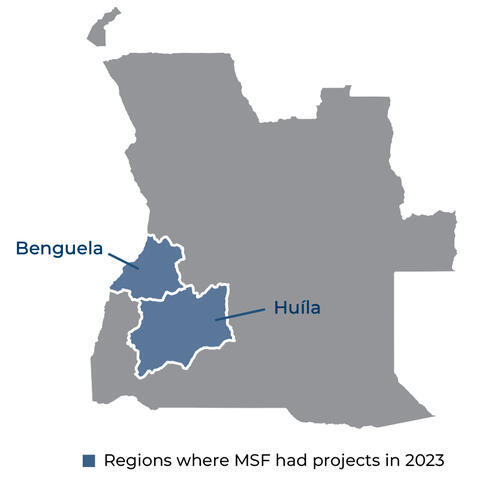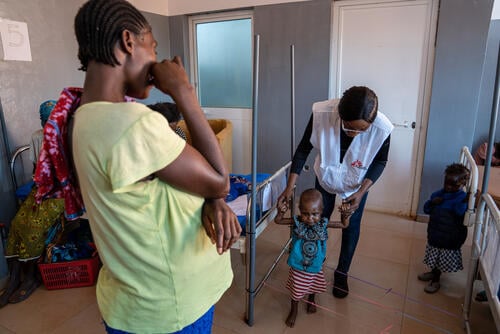We consolidated our operations in 2017 and 2018, supporting the health authorities to respond to emergencies - from the water, sanitation and healthcare needs of more than 30,000 people who had fled conflict in neighbouring Democratic Republic of Congo to tackling outbreaks of cholera and malaria.
In 2022, we returned to Angola to improve paediatric care for malnutrition and malaria and prepare for the possible consequences of drought on people’s health.
In August 2023, we closed our projects in Angola and handed over all medical activities to the Angolan Ministry of Health.
Our activities in 2023 in Angola
Data and information from the International Activity Report 2023.
124
124
€4.5 M
4.5M
1983
1983


25,300
25,3
2,750
2,75
880
88

Pretence of normality

Forced displacements and increasing violence

Civilians caught in the crossfire

Deterioration of the medical and nutritional situation

Angola's pretence of normality hides manipulation, violence, and a neglected population.




